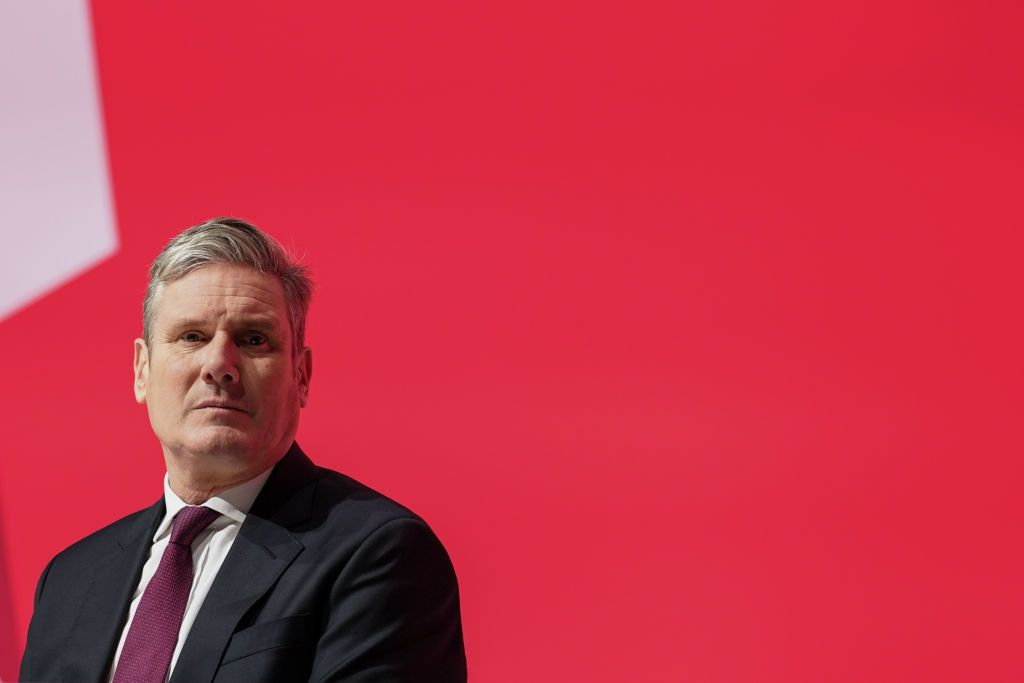Party conferences offer oppositions space to set out their stall and get far more attention than any other time in the political year. But this year’s Labour conference will see the party being much more reactive than it might have hoped, given this is supposed to be the point where Keir Starmer sets out his stall for Labour as a government in waiting.
The government’s ‘Plan for Growth’ was unveiled on the very eve of this meeting in Liverpool, and it is so big that naturally the party’s spokespeople are going to spend a fair amount of their time in interviews, speeches and fringe debates responding to it. This conference is supposed to see the party shift from talking to itself to the country. Here are some of the challenges that Starmer faces in achieving that:
What would Labour actually do?
Starmer’s allies say the focus on the new government’s policy is not necessarily unhelpful, given Liz Truss and Kwasi Kwarteng have vacated the centre ground and allowed Labour to have very clear dividing lines with the Conservatives. ‘Boris Johnson took up so much space,’ explains one aide. It was much harder when the Tories under Johnson were announcing things that Labour might also contemplate doing. Focus groups repeatedly highlighted that one of Starmer’s main weaknesses was that he appeared to be criticising constantly without offering any alternative.
Liz Truss and Kwasi Kwarteng have vacated the centre ground, allowing Labour to have clear dividing lines with the Conservatives
The precise predicament he often found himself in was slightly different: during Covid but also in the months after, he didn’t disagree so much with the government’s policies as he did with how ministers were implementing them. Now he can move from an approach that might be summarised roughly as ‘we would do this too but better’ to ‘we would do something totally different’.
But the conference will see a shift from Starmer and his frontbench colleagues talking to the party about how it needs to change in order to win, to speaking to the country. The focus will be on ‘bread and butter’ issues: the cost of living, NHS, crime and education will be the four big areas where we’ll get announcements.
What is the party’s slogan?
There seem to be two slogans doing the rounds in Liverpool this weekend. The official one is ‘fairer, greener future’, and there has even been a fight about whether the party’s red rose should have gone green in order to signal that Labour sees the fight against climate change as being key to the future. The problem is that as well as probably looking awful (there are some greenish-white roses, it is true, but the plant might look as though it hadn’t yet opened from its bud if it was a rich green), it would invite suggestions that Labour might be open to working with the Greens. That was a prospect in days gone by when Jeremy Corbyn and even Ed Miliband led, but not now.
The other is ‘fresh start for Britain’, which some frontbenchers are using. The two don’t contradict one another – mind you, very few conference slogans have enough meaning anyway – but one of the challenges Starmer has had over the first year and a bit of his leadership has been to restore message discipline in his party.
Trouble with the unions
On the subject of message discipline, Starmer and Angela Rayner have been insisting today that they will always defend the right to strike, but the leader is coming under pressure to show more solidarity with workers. He is sticking to his instruction that frontbenchers not join picket lines, and that will certainly come up in tomorrow’s conference hall debates and speeches about work. Party sources feel only Unite is the union likely to air its dirty laundry in public, but members and indeed some MPs are unhappy with the position Starmer is taking, which is that the party has a different job to do than the unions.
Has Starmer got what it takes?
Starmer’s big speech this year is on Tuesday, rather than at the close of conference. That used to the traditional timetable for Labour so that Tony Blair could leave conference early and make a show of returning to Westminster to get on with the business of governing. Moving it to the last event of the conference meant delegates went home roused by their leader, but gave him very little chance to soak up their appreciation or drive the message home before the Tory conference started. Starmer’s colleagues also think he found last year’s event ‘lonely’ because he spent most of it either preparing for his speech or trying to avoid people so that he didn’t catch Covid at what was a super-spreader event.
The Labour leader introduced himself, his backstory and what he stood for at last year’s conference, but he is still heading into this one with questions about his capacity to excite voters. When Johnson was prime minister, being a bit boring might have been a virtue in contrast to the endless psychodrama in the Tory party. But Starmer is not his party’s best communicator, and there are plenty on his frontbench – and in the wider party – who think they could do the job better. Angela Rayner, Wes Streeting (who I interviewed in this week’s magazine), and Andy Burnham are the most prominent figures.
Behind the scenes, senior figures are still anxious that Starmer just doesn’t have the ability to get the party back into government, even though they admire the internal changes he has made. Today when interviewed by Laura Kuenssberg, the Labour leader claimed that ‘the hope of a Labour victory has turned into a belief in a Labour government’. But that’s not the private mood among the shadow cabinet, many of whom are still anxious that they might yet lose the nest election.







Comments